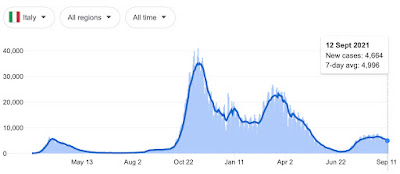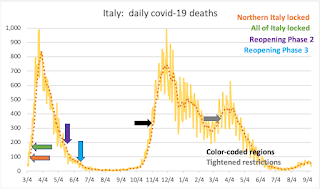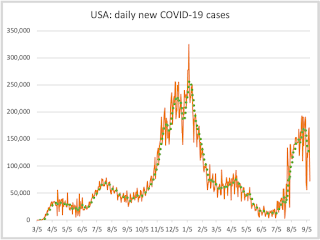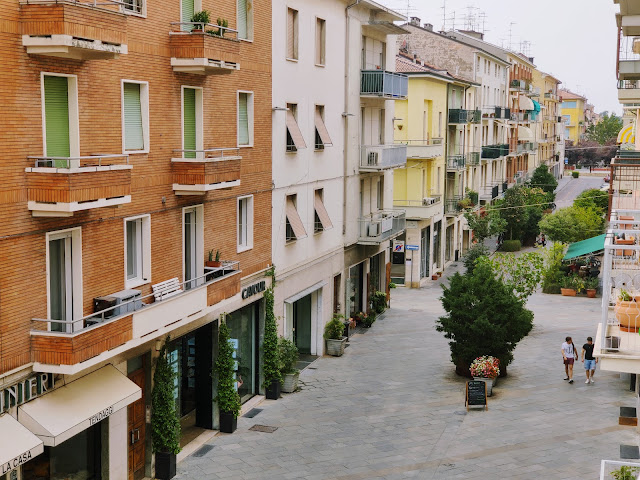I'm a long-time member of a Twelve-Step group. I'm going to adhere to that world's traditions and not say which one, but the Steps are no secret, and it's well known that they include a lot of talk about a Higher Power, about "God as we understood Him," about "humbly ask[ing] Him to remove our shortcomings" and "praying...for knowledge of His will for us."
Lots of people have had problems with this aspect of the Twelve Steps, including atheists like me, but what I want to discuss here is an issue that has come up in many of the meetings I attend in California, particularly among some of the more earnestly feminist women in the fellowship. They don't object to God being in the steps, but they do bridle at all those Hims. Many insist on revising the steps when they read them aloud to say, for instance, "God as we understood God" and "God's [rather than His] will for us," so that the deity's gender remains unspecified. There has even been talk about trying to get the worldwide fellowship to officially change the Twelve Steps in order to eliminate all gender-specific pronouns.
The same fellowship exists in Italy, too, and there's a weekly meeting in Fidenza that I attend. It's all in Italian, of course, and one of the things that struck me right away is how impossible the gender-neutrality project would be in a country where every noun is either male or female.
Take the Serenity Prayer, which in English starts out, "God, grant me the serenity..." In Italian it's "
Signore, dammi la serenita'..." because
signore literally means "lord," which is conventionally how God is addressed. Nowadays
signore is also the polite form of address for men and not just deities. So every week when we recite the prayer I inwardly chuckle at how indignant my California friends would be at addressing God as "Mister."
 |
| When I searched my photos for "god," this old photo of my dad came up. Patriarchy! |
It isn't only God who's gender-specific. The prayer goes on to ask for the serenity to accept things I can't change, courage to change the things I can, and wisdom to know the difference. In Italian each of these things is assigned a gender identity:
serenita' and
sagezza are feminine,
coraggio is masculine.
So is every other noun in the language, and the logic of which word is assigned which gender is unclear. Milk (
latte) is masculine and so are breasts (
seni), although udders (
mammelle) are feminine. Meat (
carne) is feminine and so are machines (
macchine). This is one of those things that you learn by memorizing, not by ratiocination.
Moreover, a woman can't be a
scrittore, a writer. She's a
scrittrice, a writer-ess. She's not a
dottore, but a
dottoressa. The de-gendering of words such as "actor" or "waiter" that's happened in English would be hard for Italian speakers to wrap their minds around.
I've read that countries with gendered languages adhere more closely to traditional stereotypes about men and women, and I can see why. In Italian a noun's gender affects so much in the typical Italian sentence that, for a novice speaker at least, gender has to be kept in mind all the time. Adjectives have to be in gender agreement with nouns, and so do plurals. Children are either female (
bambine) or male (
bambini), and if I want to say "We went to Parma" it's
Siamo andate if it's Pam and me but
Siamo andati if I went with Danny.
That's because when boys and girls or men and women are together, it's always the masculine form that predominates. So even though I have two sisters and one brother, my siblings are
i miei fratelli (literally "my brothers"). Even though I have a daughter and a son, my children are
i miei figli (literally "my sons").
One additional bit of confusion arises when using Italian's formal form of address. When you're speaking to someone older or more important than yourself, or just someone you don't know very well, instead of using "tu" (the informal second-person pronoun) and its associated verb forms you're supposed to use
Lei, which also means "she." Maybe this stems from antique forms of address using feminine-gendered nouns of respect, such as
Sua signoria, "your lordship," or
Sua eccellenza, "your excellency. I've also read that it derives from Spanish court traditions, from the era when Spain ruled large parts of Italy.
Whatever the reason, someone working in a store, for instance, will say
Cosa potrei offirLa? or
Grazie a Lei! ("What can I offer her?" and "Thanks to her!") to a male customer, just to be polite. The femininity of this form of
gentilezza, as well as its purported foreign roots, led Mussolini to ban official use of the formal
Lei while he was in power, in favor of the older, supposedly more Italian use of
voi, the plural "you," as the courtesy form.
When I told my Italian Twelve-Step pals that some Americans wanted to eliminate the male pronouns in the Steps, they were plainly baffled. Everything in their version of the Steps, everything in their world, is either male or female. It was hard for them to imagine how that could be changed, or why anyone would want to change it.
But perhaps change is on the horizon. There are regional elections coming up in Italy later this month, and the parties of the right and left see this as an important test of strength. Just before we left town I noticed this poster in downtown Fidenza.
I figured this gal for a right-winger just because of her Fox News makeup and bottle-blonde hair, and sure enough, she's a leader of Berlusconi's Forza Italia and the candidate of a coalition of right-wing parties calling themselves
Popolo della Famiglia, "People of the Family." And the only political content on the poster is the battle cry
No gender nelle scuole, "No gender in the schools."
That slogan notwithstanding, I don't think neofascists in Italy are on the same gender-neutral page as California feminists. I haven't been following Italian politics as closely as I should, but no doubt these rightists are trying to make political hay with the same "bathroom bill" homophobia that their counterparts in the U.S. have been hammering on. In the U.S. these right-wing campaigns have been all about emphasizing so-called biological gender, but in Italy the push is to not talk about gender at all. Here the bright line dividing the world into male and female must seem--to some, at least--omnipresent, eternal, all-inclusive, beyond argument. Not unlike God Itself.

















































